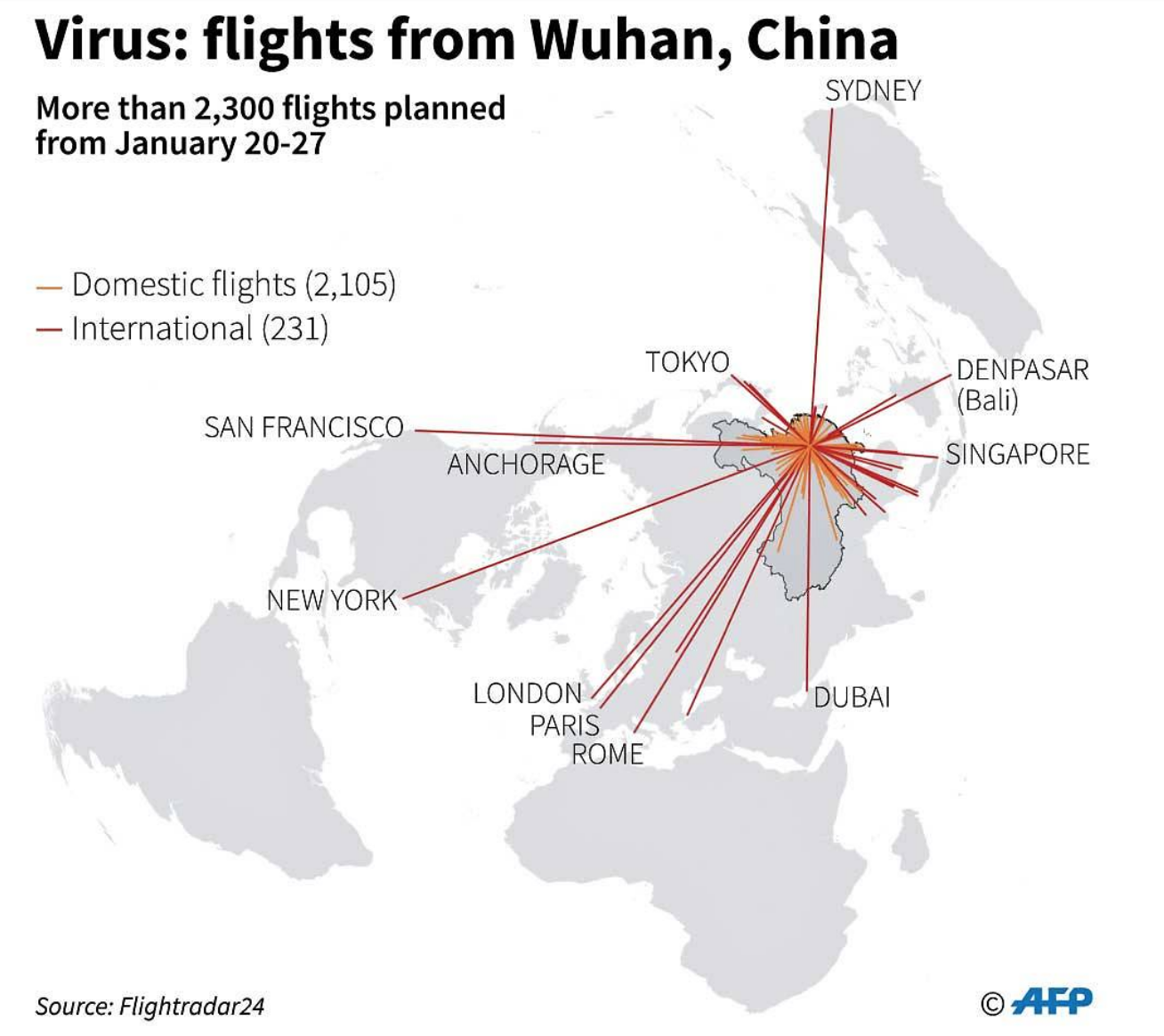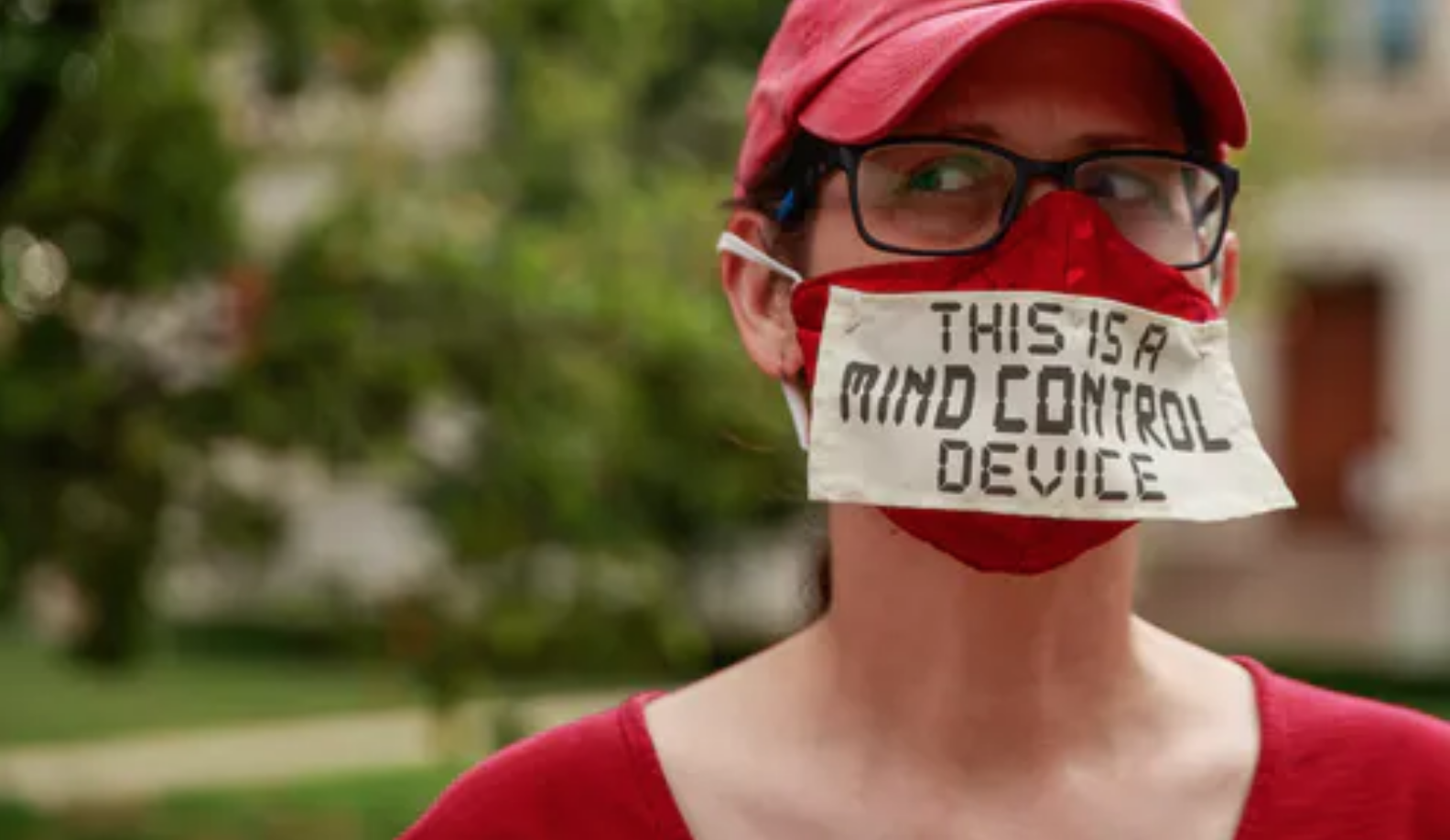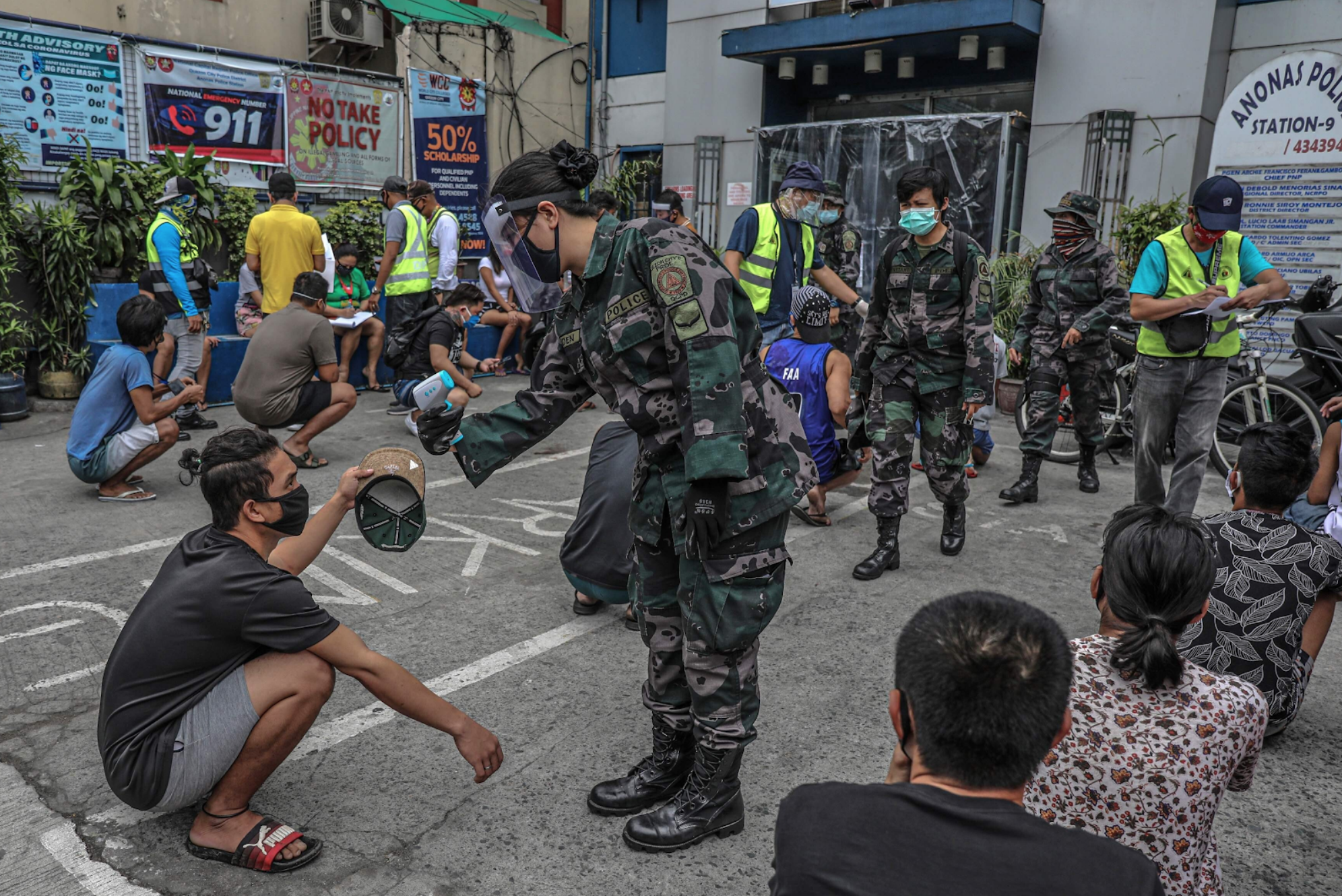
Featured image: Partygoers attend a Wuhan music festival in the waterpark months after the first coronavirus case was found in the city.
By Razel Suansing
The orange inflatable boat aimlessly floats in the water as it crashes into many others. Miles and miles of people crammed together. When one looks to the horizon, it seems as if the swimmers are infinite, an unimaginable number of people. No masks. No social distancing. Not conscientious of the existence of a global pandemic or a virus afflicting millions. This scene would be unimaginable to those of us social distancing in the era of COVID-19. However, this scene was exactly the one depicted by an image of an electronic music festival in Wuhan, China, “ground zero” of the coronavirus pandemic. When the Cable News Network (CNN) posted the photo on their Instagram page, it garnered strong responses from all sides. Many commenters were quick to promote their conspiracy theories on how the coronavirus was “manufactured” in China as a bioterrorism weapon. Some expressed their rage about the insensitivity of the party. One commenter stated that “it’s ironic that they’ve returned to normalcy but the rest of the world remains in free fall.” Yet, some praised China for their quick response to the virus and stated that they had every right to celebrate the decreasing number of cases.
China has often used images like these as symbols for success and promoted itself as the gold standard of coronavirus responses. The propaganda campaign endorsing the “effective deployment of high-tech authoritarianism” hopes to encourage the world to mimic their harsh measures. The campaign weaponized television segments from Trevor Noah and Bill Gates that criticized the U.S.’s response while praising China’s measures as “very good news.” The subtitled clip has been a quarter of a million times on Weibo, China’s Twitter-like platform.
Aside from China’s propaganda self-praise, other methods have been used to establish their global hegemony, such as sending medical equipment and expert doctors to aid other countries as they grapple with the virus — an act which on the surface seems as if it is in good will but can arguably be classified as a strategic demonstration of soft power. Chinese news outlets carefully selected images depicting the worst of democratic response; they circulated photos of British and American hospital workers wearing plastic bags instead of personal protective equipment (PPEs). A narrative on how the illness is an act of American bioterrorism was also promoted. With the rise of Chinese influence, the romanticization of authoritarianism in crisis periods is gaining traction. Are China’s claims that authoritarianism is more effective veritable? I will aim to analyze this question by evaluating China’s response to the virus and possible reasons why authoritarianism is promoted as a more viable option than democracy during a crisis.

Currently, the state of the coronavirus in China is astonishing, specifically in Wuhan, what was once the epicenter of the virus. There are zero new cases in Wuhan and only 324 active cases in China. The praiseworthy measures taken by China are as follows: locking down the population, constructing dedicated treatment areas to isolate the patients, adding body temperature detectors around doorways, and employing stringent work guidelines for symptomatic patients. Some experts have claimed that the invasive steps taken by China (eg. surveillance through facial recognition) were effective in quelling the virus.
However, praising China’s response solely based on its current statistics ignores the faults of authoritarianism. The failure of China’s early response to the virus is often forgotten. The repression of dissent and the downplaying of the virus, a common trend among authoritarians, allowed the crisis to escalate to higher proportions. China failed to contain the homegrown disease and allowed five million people to leave Wuhan before it was locked down. The most famous example of this repression was ignoring Dr. Li Wenliang and eight other doctors’ warnings to lock down the city in December. The errors have massive implications. One study found that if lockdown was imposed in Wuhan just three weeks earlier, the number of cases would have reduced by 95 percent and “significantly [limited] the geographical spread of the disease.” said Professor Andrew Tatem of the University of Southampton. It is now evident that the authoritarian measures that China so proudly brandishes failed to create an effective early response, and the whole world is now facing its repercussions. With China’s response exposing the weakness of authoritarianism, we must reflect. Why does the public view authoritarians as more effective responders during a crisis? Should we defeat or bolster the romanticization of authoritarianism in crisis?

First, a possible reason for the romanticization of authoritarianism is the argument that it breeds a more obedient population and can thus address a public health crisis more effectively. The Chinese media has actively depicted how its foil, the United States, symbolizes that democracy does not work in crises. A country with no coordinated, federal response, the United States is so starkly, geographically divided by the severity of the virus. One can argue that the culture of individualism or states’ rights prevalent in democracies in which people have greater choices has led to its weak response for individuals or states have chosen to violate health protocols for their own enjoyment. These people who have violated such protocols do not face repercussions in the United States and are sometimes seen as heroes of choice, often ignoring science, or worse, spreading disinformation for their own convenience. Thus, authoritarians have been quick to criticize democracy—simultaneously promoting how authoritarianism breeds an obedient, united population and leads to a swift, effective response.

However, it has been proven that population discipline and obedience are not necessarily determined by the form of government. Democracies such as Taiwan and South Korea, two countries with evident success in their response to COVID-19, have claimed that government transparency and competence increase public trust and lead to disciplined citizens. Authoritarian states such as Iran are distrusted by its citizens. In an interview with Deutsche Welles, sociologist Saeed Paivandi stated that “due to this distrust, society ignores information given out by the government.” Given that both authoritarian and democratic countries have mixed evidence of discipline among its citizens, government trust can be seen as a more reliable gauge for coronavirus response effectiveness.
Another possible appeal of authoritarianism during a crisis is the government’s ability to make hasty decisions, create a united response, and act more efficiently. Often, democracies are viewed as bureaucratic institutions that take extended periods of time to make decisions. Thus, in times of crisis, some view that democracies may not be as effectively address crisis situations. Authoritarian leaders all over the world have taken advantage of this mentality and used the coronavirus to amplify his power. Notably, in Hungary, Viktor Orban’s government passed a law that would allow him to rule by decree and suspend laws. In Israel, Prime Minister Benjamin Netanyahu has used the crisis to postpone his corruption trial, to prevent parliament sessions from taking place, and to initiate extensive surveillance. The crisis and citizens’ belief that authoritarianism creates more efficient and united measures have been used by these leaders to obtain special powers, solidifying their authoritarian positions.
Although it is true that quick response is a known characteristic of authoritarian governments, these responses may not be the most effective because a thorough vetting process is often neglected. Authoritarians are afraid of dissent and thus do everything possible to repress opposition. Through the elimination of critical voices, procedures are not properly evaluated from various standpoints and are now singularly aligned with an individual leaders beliefs, though they may not be medical experts. Leaders have weaponized the coronavirus to arrest critics under the pretense of disinformation. In Turkey, President Recep Tayyip Erdogan has arrested journalists who criticized the effectiveness of Turkey’s response to the coronavirus, stating they were spreading “provocative news.” Recently, dissidents have faced dire consequences. A doctor who disputed the country’s statistics was forced to apologize in public. A truck driver stated in a viral video, “either I stay at home at your word and die from hunger or I die from the virus. In the end, it’s not the virus but your system that will kill me.” He is now detained. In the Philippines, congress passed the Bayanihan bill that possesses a clause stating individuals can be arrested for spreading fake news during the pandemic. Countries in Central Asia are prohibiting photo and video recording in hospitals and quarantine facilities to prevent a transparent view of their governments’ responses. Civic activists and journalists have already been arrested under these provisions. Yale Doctoral Candidate Melissa Pavlik, found the same results in her research. Pavlik specializes in comparative politics and state repression. Pavlik recently wrote an article on the Washington Post about state “opportunistic repression” during the coronavirus pandemic. In an interview with the Globalist, Pavlik stated “when people think of authoritarianism, they often think of total control of everything. But actually, authoritarian states aren’t always the most efficient or competent states. Sometimes, they don’t have the ability to gather data or information they need to make correct decisions.”

Further, Pavlik explains that government officials who are currently in office and belong to the majority party are afraid of dissenting. “It can discourage the bureaucracy or the government officials when they need to appease a higher power than do their job in a way they might think is best.”
Reasonably as most authoritarian leaders do not have expertise in medicine, they rely on their specialties such as militarism or politics to respond to a public health crisis. In the fear of having their responses criticized and losing unanimous support, authoritarian governments silence the voices of constructive critics. Thus, the authoritarian trait of crushing dissent is creating an adverse effect on the effectiveness of their response.
Given that the most persuasive appeals of authoritarianism in crisis have been disproven, one must now ponder the rights surrendered to make these ineffective measures a reality. The citizens’ complacency as their leaders use a moment of crisis to amplify their power may have long standing effects if kept unchecked. Governments have used the pandemic to stealthily take away the rights of its citizens. A violation against the right to privacy has particularly seen worrying developments. In China, a new health code system assigns its citizens colors based on their coronavirus symptoms. If citizens are assigned yellow, they are required to self-quarantine and those with red tags have their location immediately sent to the police. In Russia and Central Asian countries, facial recognition software is used to track individuals who break quarantine protocols. Even the world’s leading democracies have adopted similar protocols as authoritarian states, signaling a worrying trend in the rise of invasive measures and the curtailing of civil liberties. In the United Kingdom, drones are used to patrol quarantine violators, and the Chief Constable of Northamptonshire threatened to “marshal supermarkets and check the items in baskets and trolleys to see whether it’s a legitimate, necessary item” if citizens did not follow health protocols, which is constitutionally unsound. Though these privacy violations seem reasonable during a pandemic, experts worry that the pandemic may be redefining human rights norms.
Razel Suansing is a first year in Davenport College. You can contact her at razel.suansing@yale.edu.